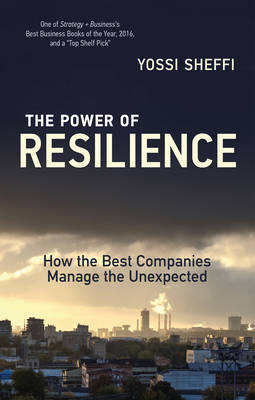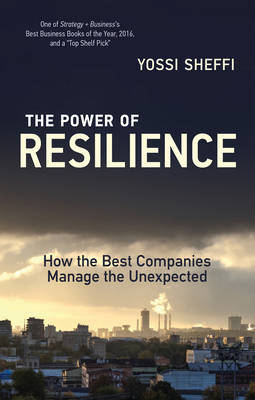
- Afhalen na 1 uur in een winkel met voorraad
- Gratis thuislevering in België vanaf € 30
- Ruim aanbod met 7 miljoen producten
- Afhalen na 1 uur in een winkel met voorraad
- Gratis thuislevering in België vanaf € 30
- Ruim aanbod met 7 miljoen producten
Omschrijving
A catastrophic earthquake is followed by a tsunami that inundates the coastline, and around the globe manufacturing comes to a standstill. State-of-the-art passenger jets are grounded because of a malfunctioning part. A strike halts shipments through a major port. A new digital device decimates the sales of other brands and sends established firms to the brink of bankruptcy. The interconnectedness of the global economy today means that unexpected events in one corner of the globe can ripple through the world's supply chain and affect customers everywhere. In this book, Yossi Sheffi shows why modern vulnerabilities call for innovative processes and tools for creating and embedding corporate resilience and risk management. Sheffi offers fascinating case studies that illustrate how companies have prepared for, coped with, and come out stronger following disruption--from the actions of Intel after the 2011 Japanese tsunami to the disruption in the "money supply chain" caused by the 2008 financial crisis.
Sheffi, author of the widely read The Resilient Enterprise, focuses here on deep tier risks as well as corporate responsibility, cybersecurity, long-term disruptions, business continuity planning, emergency operations centers, detection, and systemic disruptions. Supply chain risk management, Sheffi shows, is a balancing act between taking on the risks involved in new products, new markets, and new processes--all crucial for growth--and the resilience created by advanced risk management.
Specificaties
Betrokkenen
- Auteur(s):
- Uitgeverij:
Inhoud
- Aantal bladzijden:
- 484
- Taal:
- Engels
- Reeks:
Eigenschappen
- Productcode (EAN):
- 9780262533638
- Verschijningsdatum:
- 24/03/2017
- Uitvoering:
- Paperback
- Formaat:
- Trade paperback (VS)
- Afmetingen:
- 142 mm x 221 mm
- Gewicht:
- 612 g

Alleen bij Standaard Boekhandel
Beoordelingen
We publiceren alleen reviews die voldoen aan de voorwaarden voor reviews. Bekijk onze voorwaarden voor reviews.











